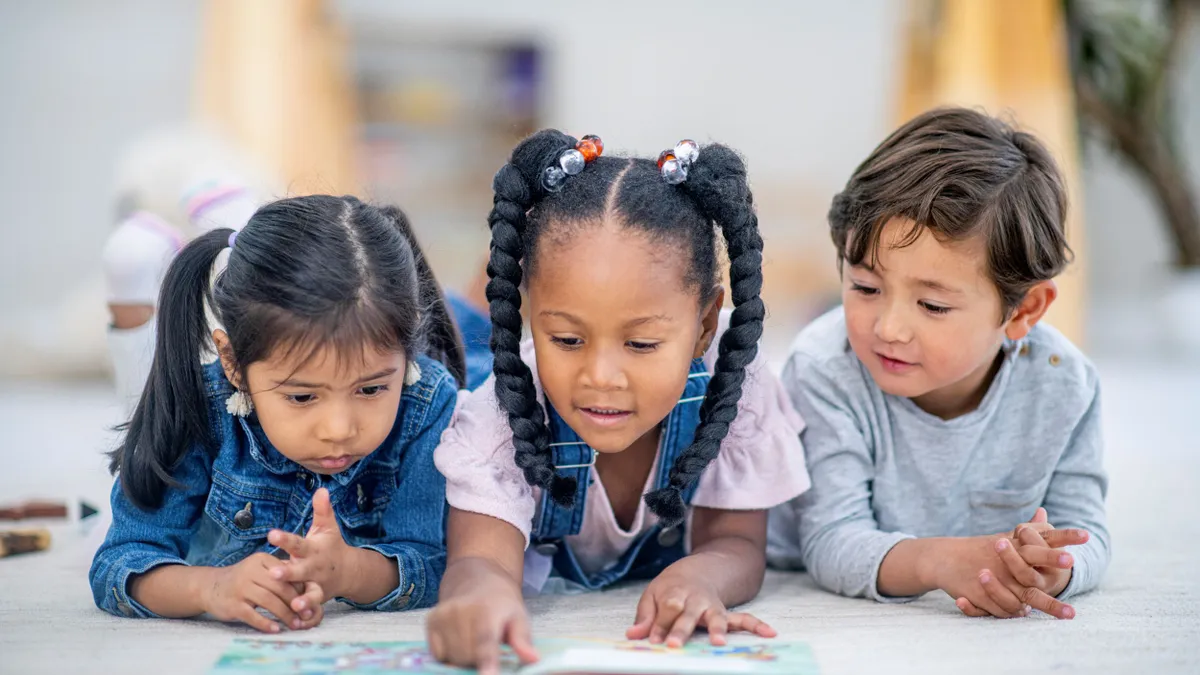Dive Brief:
- With Thanksgiving and National Native American Heritage Month celebrations on the horizon in November, there are ways that schools can look to local organizations representing Indigenous people to ensure lessons and curricula involving Native Americans are accurate.
- One good place to start is by taking stock of what curricula may already be available before asking a local group to work on building something unique, says Meredith McCoy, an assistant professor of American studies and history at Carleton College in Minnesota.
- “We know that there is disproportional labor around Indigenous Peoples Day and National Native American Heritage Month,” said McCoy, who identifies from Turtle Mountain Ojibwe descent. “Look to resources that have already been created and made readily accessible.”
Dive Insight:
McCoy says there are many ways educators can go about curating a curriculum that ensures representation is respectful and keenly accurate. One is to look for resources that are vetted. To start, she encourages schools to seek materials from tribal educational organizations and native nonprofits, such as the National Indian Education Association and both Understand Native Minnesota and Indigenous Chicago.
McCoy also encourages classes to review tribal websites to see how people choose to refer to themselves. These are good resources for grounding students in tribal sovereignty, she says.
Furthermore, McCoy points to Nambé Pueblo scholar and author Debbie Reese’s blog, as well as The National Native American Boarding School Healing Coalition and the Native Knowledge 360º Education Initiative from the Smithsonian’s National Museum of the American Indian, for other reliable resources.
Educators should try not to focus on teaching about native people only in November or at the start of the school year — traditional times when the topic may come up in the curriculum, McCoy said.
Teachers can engage in indigenous topics all year round,” she said. “They’re impacting every sector of society.”
Finally, McCoy advises teachers not to conduct simulations or reenactments, which she believes perpetuate a fantasy about who native and Indigenous people are.
“These do tangible harm and naturalize the context as normal,” she said. “They’re counterproductive, and these are stereotypes that just aren’t real.”









